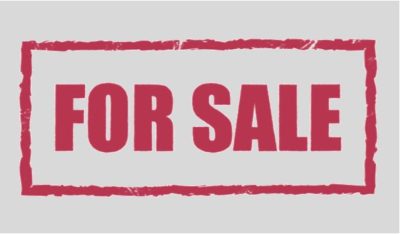
Business Valuation and Selling Your Business in the Post 2008 Economy
When it comes to selling your business, the most important question one needs to ask is: How much is my business worth? The concept that a business is worth whatever someone is willing to pay for it is commonly held, but is also naïve.
There is no precise way to value a private business. The seller wants maximum return and the buyer wants to drive the price down to maximize the return on investment. There truly are many measurable ways to value certain parts of the business with items such as inventory, fixed assets (land, building, machinery/equipment, etc.) and reputation of the company. In most cases, it will come down to how keen the buyer is to acquire the business and how good the seller is in marketing the intangibles. The complexity of the process requires a holistic approach. Traditionally, banks have embraced the philosophy “that cash flow and client base have no value because the customer base can evaporate and they aren’t required to do business with you”. However, businesses that are expanding with increasing revenues, cash flow and possess significant client lists are valuable to potential buyers and must be considered in the valuation.
Common Business Valuations Methods
In the Oil and Gas based Calgary economy, multiples of earnings is often used as a valuation method. This method is suitable for companies with an established financial history. The question to be answered though, “is the multiple on pre-tax cash flow, after tax cash flow, free cash flow, EBITDA, EBITA, or EBIT”? Where companies were trading as high as 4-5 times, the multiple today has often lessened to 2-3 times, depending on the method of earnings used in valuation and business sector. Many “main street” businesses are sold on a multiple of earnings. This continues to require analysis and consideration and is not flawed. However, in today’s world, multiples and other factors must also be considered and factored into valuations, for both the seller and buyer. This combination of many valuation methods is required to establish the true value.
Asset valuation is more appropriate for established companies with a large base of tangible assets (such as property holding companies). Calculating the net realizable value of the assets makes the valuation.
The Discounted Cash Flow method uses an estimate of the company’s cash flow over a certain period of time. The “terminal value” of the company is calculated after this period has expired. The value of the predicted cash flow, plus terminal value, is difficult as it relies heavily on cash flow estimates and discount rates. This method may be suitable when a company has significant potential, but relatively few assets and little financial history to rely on (a web-based business for example). An industry valuation is used in certain industries when businesses change hand on a regular basis, and industry wide rules of thumb can be used to value a company. An accountancy firm or recruitment firm are examples.
Other Considerations
When calculating the value of a business, one or more of these methods may be used. There are also a large number of other factors, which may be taken into consideration – many of which are the intangibles.
Clearly, the last economic downturn may influence buyers to be more cautious, however, for the sophisticated investor the timing may be right to acquire a bargain price for an established business.
Fixed assets may often be valued at original purchase price minus a depreciation calculation. Things aren’t so simple in this method as property/equipment values may have risen or fallen since the original purchase and book value may not be net realizable value.
The balance sheet of the company may not include many intangibles such as trademarks, reputation, branding, management team, key employees and quality of client base. While these items are hard to value, a business that is growing rapidly will be attractive to purchasers.
In a forced sale, any valuation methods are going to be discounted to encourage a quick sale.
So, when considering buying or selling a business, keep in mind that there is no one standard approach, but rather a multitude of options that either alone or in tandem with others may be the right method for your situation.
Dale Doering
Principal
